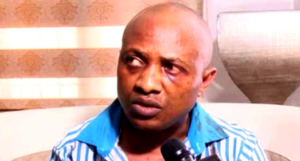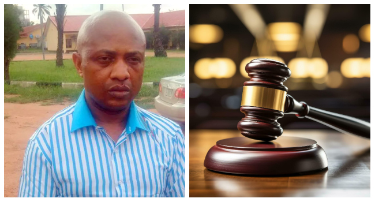The plea bargain application filed by convicted billionaire kidnapper Chukwudumeme Onwuamadike, more infamously known as Evans, remains in limbo as it awaits approval from the plea bargain committee. During a session at the Lagos High Court, Tafawa Balewa Square, Lagos State Prosecutor Moshood Olateju informed Justice Sherifat Sonaike that the plea bargain committee has yet to provide a response, causing a delay in the proceedings.
Evans, along with his co-defendants Joseph Emeka, Victor Aduba, and Okapana Linus, faces serious charges including conspiracy to kidnap, kidnapping, and attempted murder, all brought against them by the Lagos State government. The high-profile nature of the case has attracted significant public and media attention, given Evans’ notoriety and the severity of his crimes.
The proceedings on Thursday saw an attempt by Evans and one of his co-defendants to advance their plea bargain application. However, this effort was thwarted when the prosecution requested an adjournment. Prosecutor Olateju stated, “We shall be asking for a further date for the hearing of the plea bargain by the first and second defendants.” This request indicates that the prosecution is not yet prepared to proceed without the committee’s response, a crucial step in the plea bargain process.
On the other hand, A. C. Enueshike, representing the third defendant, expressed her client’s readiness to proceed with the trial. She firmly stated, “We have heard the submission of the prosecution, and we are ready to proceed for trial.” This readiness suggests a divergence in strategy among the defendants, with some opting for a plea bargain while others are prepared to face trial.
Justice Sherifat Sonaike, acknowledging the need for additional time to resolve these procedural issues, adjourned the case to October 17, 2024. This adjournment provides a window for the plea bargain committee to deliberate and make a decision, which could significantly influence the course of the trial.

The adjournment also gives the defense and prosecution additional time to prepare for the complexities of the case. For Evans and his co-defendants, the outcome of the plea bargain application could mean the difference between a negotiated settlement and the full weight of a trial. Plea bargains in high-profile cases such as this one often involve negotiations where the defendant might agree to plead guilty to lesser charges in exchange for a more lenient sentence, thus avoiding the uncertainty of a trial.
The background of Evans adds a layer of complexity to the case. Known for orchestrating high-profile kidnappings, Evans became a household name in Nigeria, symbolizing the pervasive issue of kidnapping in the country. His arrest and subsequent trial were seen as a significant victory for law enforcement, yet his plea bargain application raises questions about the potential for leniency in light of his serious crimes.
For the victims and their families, as well as the general public, the adjournment may be a source of frustration, prolonging the wait for justice. However, it also underscores the importance of due process and the careful consideration required in handling plea bargains, especially in cases involving severe criminal activities.
As the October date approaches, all eyes will be on the Lagos High Court and the plea bargain committee’s decision. The outcome will not only impact Evans and his co-defendants but also set a precedent for how such high-profile cases are managed in the Nigerian judicial system. The adjournment period will be critical for all parties involved to strategize and prepare for the next phase of this gripping legal saga.




